John and Matthew are watching every single live-action film starring Meryl Streep.
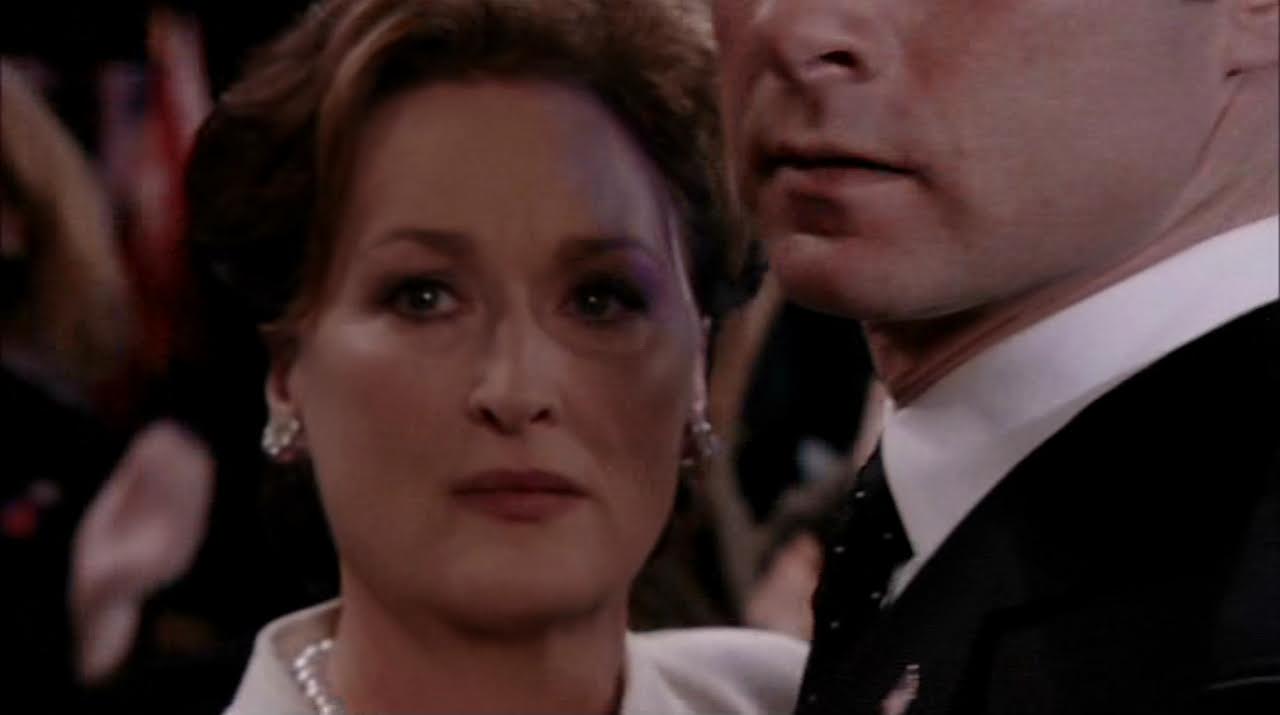
#30 —Eleanor Prentiss Shaw, manipulative mother of a Vice Presidential candidate brainwashed by an international cabal.
JOHN: The one regrettable casualty of this feature-film series is, of course, Streep’s Emmy winning performance(s) in Mike Nichols’ 2003 HBO adaptation of Tony Kushner’s Angels in America. Perhaps we’ll have time to dig into that series in the future, but suffice it to say we rank her work in it quite highly. In 2004, Streep signed on to her first-ever remake, Jonathan Demme’s The Manchurian Candidate, playing a role made famous by Angela Lansbury in John Frankenheimer’s 1962 film. Demme’s version updates Frankenheimer’s film and Richard Condon’s 1959 source novel to contemporary times, made amid the the Bush/Kerry election and thematically enmeshed in the U.S.’s “War on Terror.” Denzel Washington stars as Ben Marco, a Gulf War veteran whose puzzling memories and twisted dreams of serving in Kuwait drive him to uncover the sinister forces driving fellow soldier and newly-selected, left-leaning Vice Presidential nominee Raymond Shaw (Liev Schreiber) into national prominence. Shaw’s blandly robotic demeanor is operated by his manipulative mother, Virginia Senator Eleanor Prentiss Shaw, heir to an American political dynasty but now working covertly for the ominous international private equity fund Manchurian Global...
We first meet Eleanor as she barges into her son’s hotel room on the night of the Democratic National Convention. Her hair done up, bedecked in pearls, and sporting a chic pistachio suit, Streep barrels into the scene, perching over her son’s soldier, coaching him on how to speak and angle himself for the camera at the convention. Streep’s lively entrance immediately establishes Eleanor as someone who relishes and indeed thrives on being in control, diligently working behind the scenes to craft a front for the public and score political points for her relatively dull son. She rattles off demands at party delegates in such a grandstanding and domineering manner that one could easily assume she is running herself — which, in a way, (spoiler) she is — and never attempts to soften Eleanor for either the delegates or the film’s audience. I usually prefer this sort of active, strategizing type of Streep performance, and it’s clear that she’s having fun riffing on an iconically devilish role, but as the film progresses, Streep’s early stabs at broad villainy stay exactly there, and her Eleanor becomes more one-note, even in scenes where the character is supposed to reveal hidden dimensions. There’s something almost too pleasurable and obvious about Streep’s Eleanor, the character’s terror stymied by Streep’s flamboyant performance. Everything is spelled out and boldfaced about the character’s power-mad schemes and deceitful connections, hindering any signs of inner depth.
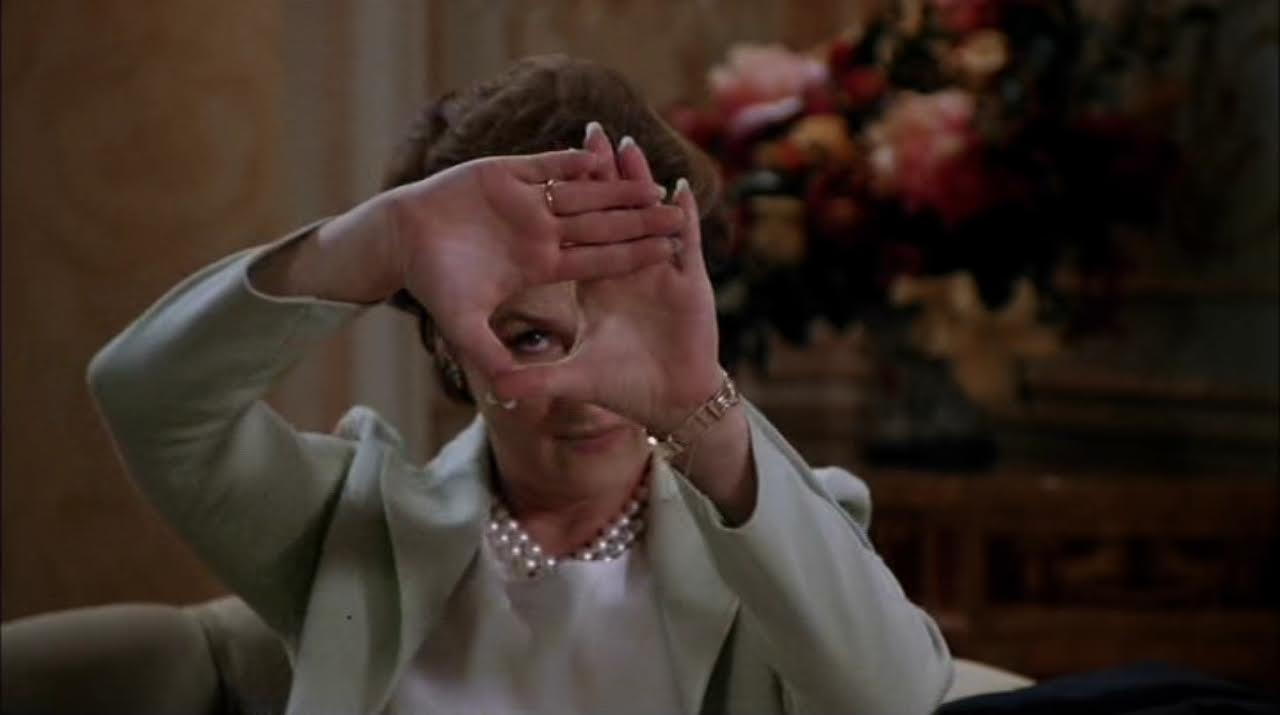
What did you make of Streep’s entrance? Are you ready to broach the Clinton and Lansbury comparisons?
MATTHEW: Sure, let’s go there. I think it’s important to note that, with the lone and debatable exception of She-Devil, The Manchurian Candidate marks Streep’s first crack at a character who is outrightly evil. It’s clear from that first scene, in which the actress bursts into the movie fussing and smothering Schreiber without pause, that Streep is having a field day with this hard-charging villainess. Eleanor Prentiss Shaw is an unscrupulous and megalomaniacal career politician with a closely-cropped haircut and a penchant for pastels and prominently-displayed pearls, physical markers that critics quickly seized on in order to lazily compare the character to Hillary Clinton, a gossipy allegation that reared its ugly head as recently as the 2016 election.
Streep herself went to great pains to distance the character from Clinton upon the film’s summer 2004 release. “There is a rumour that Paramount asked to tone down scenes that were too much like Hillary Clinton,” Streep told The Guardian. “That disturbed me.” Streep insisted that her performance was in no way influenced by the then-New York senator, insisting, “This isn't paranoia, this is called misinformation. Disinformation, I guess you call it. It's manipulating public opinion with a fake buzz.” However, Streep did admit that she modeled her performance on a different public figure: “I think I’m doing a dead-on imitation of this person… But no one’s got it.”
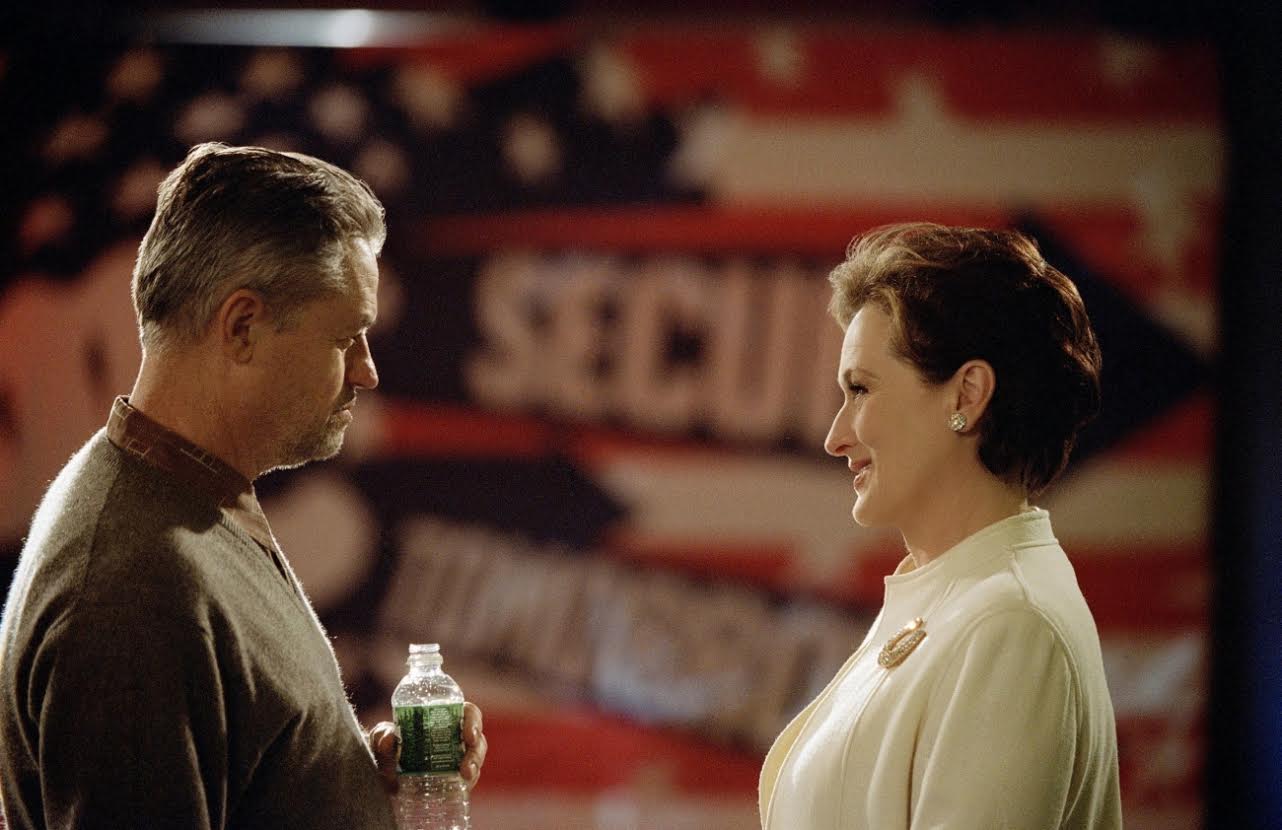 Jonathan Demme with Streep on set
Jonathan Demme with Streep on set
In lieu of playing a guessing game or adding any more fuel to the Clinton speculation, let’s just say that, like Demme’s reconfiguration, Streep is intent on having her take of this iconic matriarch stand on its own two feet… which it does, but not always to the benefit of the character or the literal-minded film that contains it.
In his Manchurian Candidate, Demme has undeniably ambitious ideas about depicting the militaristic mentality of a propagandist, post-9/11 America and a long bench of redoubtable actors to support Washington, Streep, and MVP Schreiber, including Kimberly Elise, Vera Farmiga, Bruno Ganz, Jon Voight, and Jeffrey Wright, among others. But the late and dearly-missed Demme, one of cinema’s most sensationally offbeat raconteurs who, by 2004, was caught in a murky if not totally uninspired moment of his narrative filmmaking career, never comes close to approximating the puzzled, paranoiac chill that sharpens every frame of Frankenheimer’s earlier version or offering anything equally effective in its place. This isn’t to say that idea of this remake is, in itself, a fruitless gesture; Conrad’s narrative could seemingly be adapted to capture the political climate of any era in this country so it’s ultimately not an absence of “relevancy” that hampers Demme’s attempt but rather singularity.
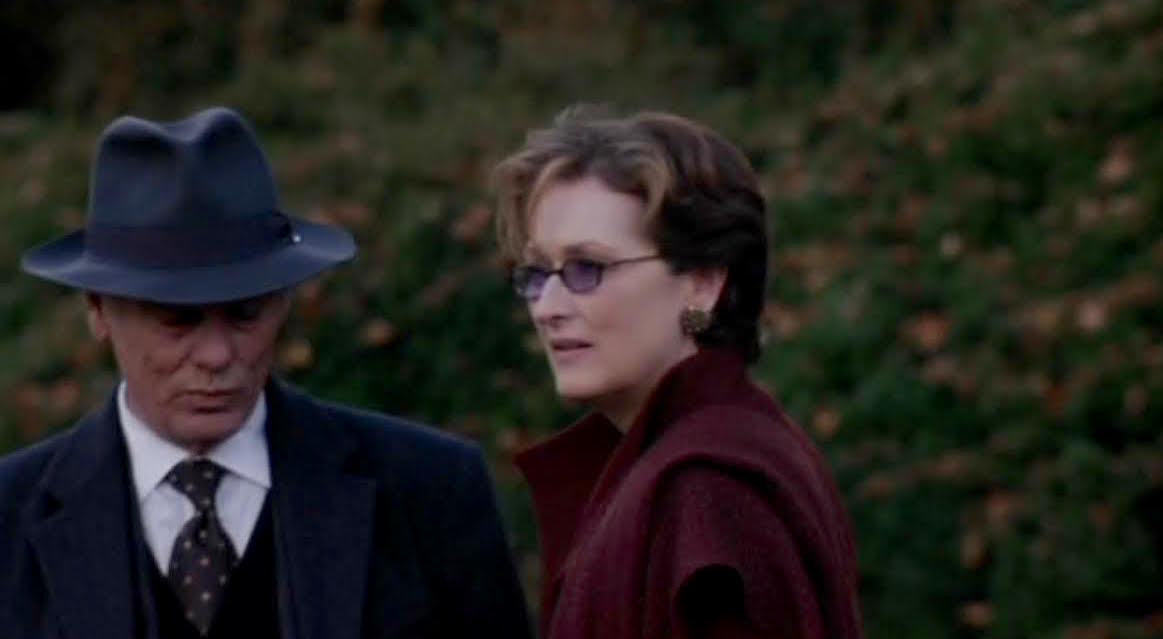
Streep faces a similar challenge of differentiating herself from the indelible interpretation that preceded her own, even though Eleanor Prentiss Shaw is a far more self-empowered creation than the earlier Mrs. Iselin. She’s still a cunning puppet-master and tenacious king-maker, but, unlike her previous iteration, Streep’s Eleanor hides behind no one’s shadow: she’s a passionate (read: fear-mongering) patriot whose polarizing reputation derives from a habit of shamelessly wearing her ambition on her sleeve. And whereas Lansbury attacked with cobra-like concentration, wavering between stages of snippy meddling and muted Machiavellian watching, Streep chooses ceaseless behavioral busyness as her preferred battle tactic. In scene after scene, the actress finds endless ways of simply adding more to her shots, whether she’s laying wet smooches on Schreiber’s cheek, flagrantly chuckling at her more apprehensive opponents, or gnawing on ice chips during a mostly exposition-filled dinner scene. This approach certainly gives us something to watch, but I think it also traps Streep, who, as the film progresses, keeps augmenting her own flamboyance. She doesn’t embrace nearly enough of the opportunities presented to her for variation nor, to my mind, ever fully submerge her convivial personality behind one of the more despicable roles ever handed to her.
Do you see more modulation in the performance than I do?
JOHN: I’d like to backtrack, if I may, to the Clinton comparison. Hillary Clinton’s public persona is that of a woman who would prefer not to speak publicly, whereas Eleanor Shaw has no problem and might actually find pleasure in being in the public eye, giving interviews and making stump speeches before crowds. It seems as though Clinton thrives in intimate, conversational encounters with her supporters, but Eleanor is all public and media-saturated, working chiefly for herself and disinterested in communing with whomever voted her into office. I’m still trying to guess who Streep modeled the performance after, but I wouldn’t be surprised if it wasn’t an actual politician but rather some media personality, possibly a talk show host. The comparisons to Clinton, partly a media fabrication as you’ve mentioned, are lazy and misogynist. What’s more interesting is to place Streep’s performance alongside Lansbury’s Eleanor, one a highly expressionist iteration of her film’s outsized fashion, the other a stealthy surprise that grounds her film in a terrifying reality. To compare the two is to compare the fundamental nature of their projects, to track how much Streep paid tribute to Lansbury while recalibrating the traits that leant Lansbury’s performance its controlled and intimidating terror. But granting the differences between their films, Streep’s Eleanor is not nearly as frightening, though louder, as destabilizing, though more obvious, or surprising, though more outwardly menacing. In marathoning through Eleanor’s fire and fury with little to no modulation, Streep essentially flattens what was once a shapeshifting and dimensional character into her own attention-grabbing yet hollow antagonist.
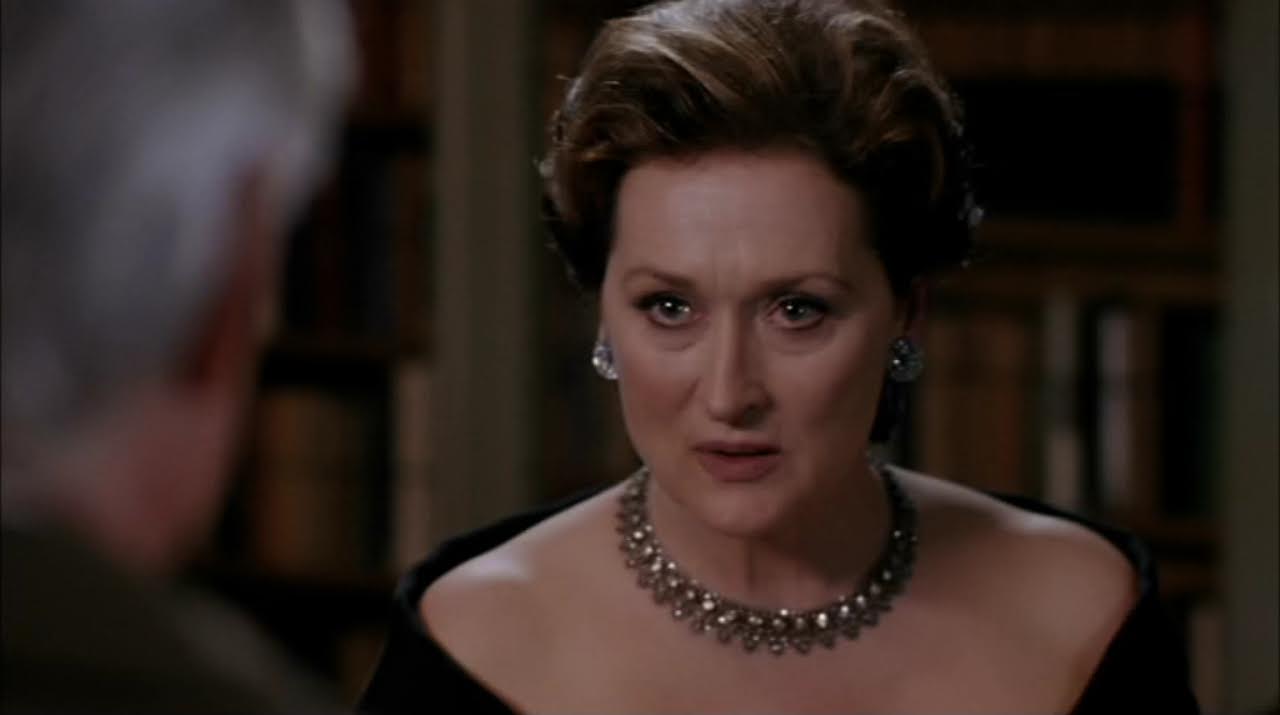
Critics who tire of Streep’s tics and mannerisms should avoid this performance, but for admirers it’s less a chore than a sampling of things we know Streep can do in her sleep. In her best scenes, Streep signals a nervous disarray beneath Eleanor’s assured demeanor, as when she’s continually fussing with her son’s clothes, directing him like a stage mom. It’s also great to see Streep tell real-life right-wing stumper Jon Voight, “I will impeach you and bury you,” with the utmost sincerity. When Eleanor finally pushes her obsession with her son’s looks into full-fledged incest, it’s plausible if not completely credible that this woman would admit such a desire, but it’s refreshing to see Streep take that risk. Her best moment is also her last moment, as Eleanor’s assassination plan crumbles before her very eyes, offering Streep a scenario in which to unravel, shoot nervous looks, and disguise her shock, all while standing before an auditorium full of people. Streep’s Eleanor is more pitiful than terrifying, a fun challenge but in no way a top-tier achievement.
Why doesn’t this performance go anywhere? Is it that Streep is playing an iconic role and destined to fall short? What are other roles you’d like to see Streep remake?
 Streep doing "Mother Courage" in NYC for Shakespeare in the Park, 2006
Streep doing "Mother Courage" in NYC for Shakespeare in the Park, 2006
MATTHEW: I’m not sure if I have any dream Streep-led remakes batting around in my head, although it would be a great pleasure to see her transfer her acclaimed Shakespeare in the Park performances in The Seagull (2001) and Mother Courage and Her Children (2006) to the big screen; the former masterpiece has been adapted for film as early as this year, with the formidable Annette Bening as Irina Arkadina, but the latter feels long overdue for a modern movie treatment, and I can think of no living actress better-suited to carry that cart than Streep.
Getting back to The Manchurian Candidate, I think Streep never quite makes sense as a cold-blooded, murder-enabling mercenary, least of all when forced to enact a worthless scene in which Eleanor, having just ordered Raymond to assassinate Voight’s senator and his daughter (Farmiga), frankly explains her choices, chalking them up as a means to a necessary end and bemoaning modern men of inaction who refuse to take the same risks. Streep plays this scene, like all of her scenes, with an irritated transparency, when surely a cagier, more understated approach might have left room for complexity and surprise. Her willowy, toying demeanor throughout the movie conveys an outwardly wicked queen leaning in from atop her throne, but it also insists upon a flesh-and-blood interpretation of this materfamilias, when enigma and carefully cloaked fundamentalism have always been the keys to the character. Streep comes ready to play but she never really bares her teeth — except, that is, in one crucial moment.
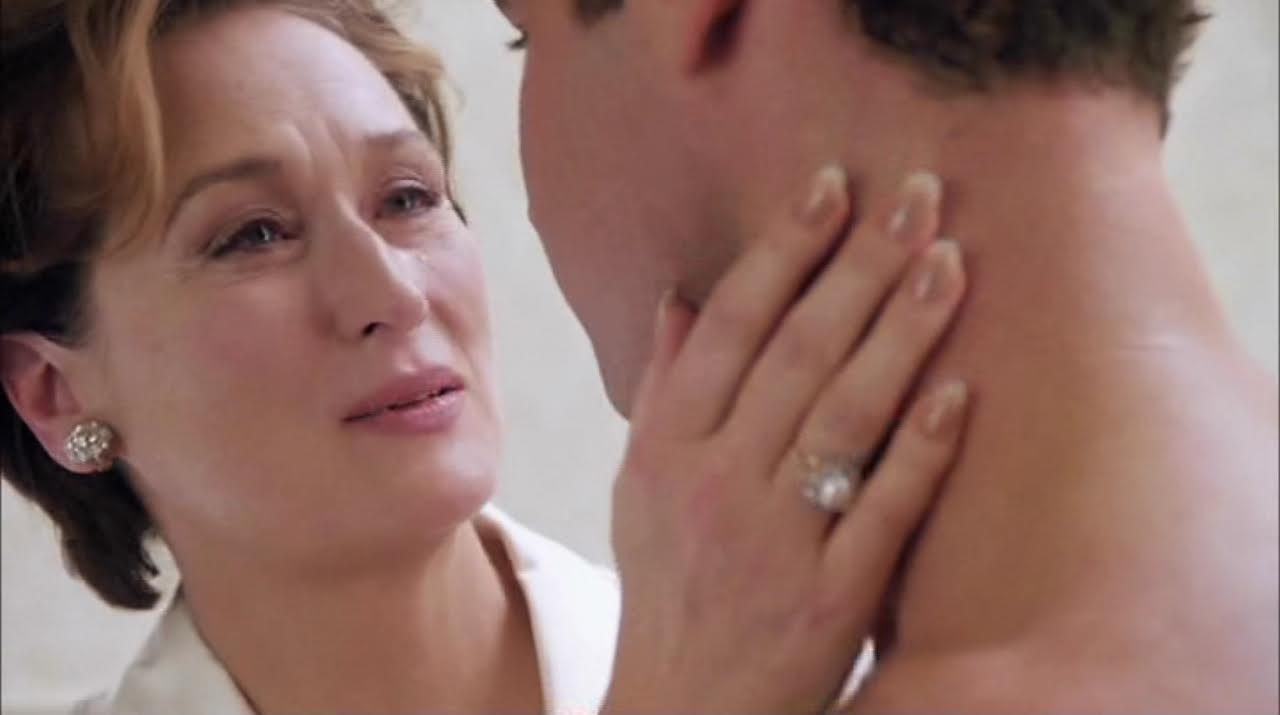
For me, Streep’s best scene is the one that cranks up the incestuous perversity between mother and son that Lansbury and Laurence Harvey only hinted at in the original. It’s election night and Eleanor is perched beside Raymond, toweling him off post-shower and preparing him to stand upon the world stage, all the while cooing about the familial legacy that his brainwashed vessel of a body will continue. Demme, working on his last feature film with the great Tak Fujimoto, adheres so closely to the two actors that we can barely make out the space they’re in. Something about these stylistic choices and the alluring, expertly-achieved vacancy of Schreiber seems to activate an alarming lustiness in Streep, never more so than when she’s stroking the actor’s bare chest and then planting not one but two eerily aware kisses on the lips of her on screen son. It’s an electrifying scene that raises the brow and then sufficiently churns the stomach, and if it doesn’t quite give this remake a reason for existing then it at least provides the always welcome jolt that only comes when a group of filmmakers is unified and unwavering in its focus, with little care for public endorsement.